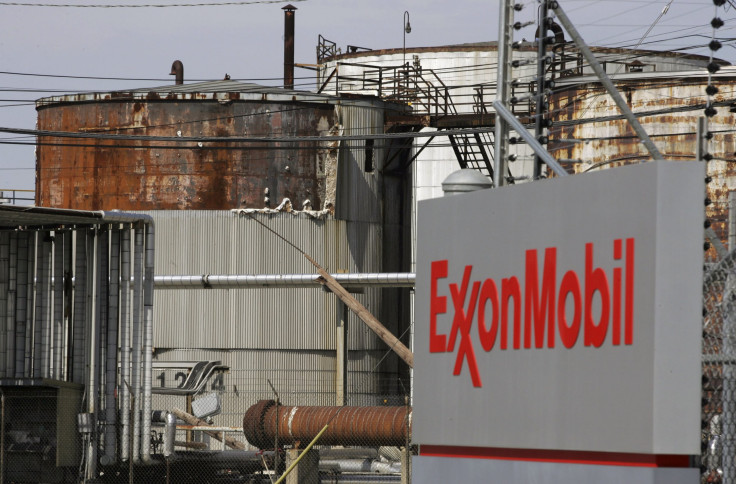Exxon New Jersey Settlement Under Fire Again As Environmentalists Seek To Join Lawsuit

Update, 7/13/15: A New Jersey judge Monday rejected a motion by environmental groups to intervene in a lawsuit between the State of New Jersey and Exxon Mobil Corp. The groups opposed the state's proposed $225 million settlement with the U.S. energy giant, arguing the state should require Exxon to pay more.
"We will continue our fight to prevent the settlement from going forward and try to represent the public’s interest since the DEP [Department of Environmental Protection] will not,” said Jeff Tittel, director of the New Jersey Sierra Club. “We are down but not out; we will continue to fight this sellout.”
Original Article Appears Below
New Jersey Gov. Chris Christie’s administration wants Exxon Mobil Corp. to fork over $225 million for a pair of oil refineries that dumped toxic chemicals into New Jersey's soil and water for decades. But the sum is a drop in the bucket compared with the billions of dollars needed to remove pollution and restore nearby wetlands, environmental groups say.
The organizations this week are seeking to intervene in the case between the U.S. oil giant and the state of New Jersey. The Natural Resources Defense Council, which is leading the effort, will ask a state judge Friday to make the organization a party to the litigation. The move would allow NRDC to argue in court for a higher settlement.
“It’s just simply not enough to restore and replace the natural resources that have been damaged,” Margaret Brown, a staff attorney for NRDC in New York, said. “And therefore the people of New Jersey are not getting a fair deal.”
Friday’s hearing is the latest chapter in a decadelong legal dispute between the New Jersey Department of Environmental Protection and Texas-based Exxon.
At the center of the saga are two massive oil refinery sites: the Bayway refinery in Linden, and another in the town of Bayonne. The facilities, both more than a century old, leaked millions of gallons of oil and 600 different contaminants into the soil during the time Exxon owned the plants, a state judge determined. The pollution covers or is buried under about 1,800 acres of wetlands, forests, meadows and waterways.
Nearly 1 million New Jersey residents live near the refineries in mostly blue-collar neighborhoods. The area used to be a popular spot for fishing, hunting and kayaking, but much of the land and water near the plants is now unusable. Plastic booms still float at the mouths of some creeks to capture the oil and chemicals that continue seeping into the water.
New Jersey’s environmental agency initially sought $8.9 billion last year to pay for clean-up and to remediate the wetlands, marshes and waterways. But in March, the state announced a $225 million settlement with Exxon, which still awaits approval from a state judge. New Jersey officials say the “historic” agreement is in addition to the separate, unspecified costs that Exxon is required to pay out of pocket to repair the damage to natural resource areas.
“We have vigorously litigated this case for the good of the environment and for the people of New Jersey,” Bob Martin, the Department of Environmental Protection commissioner, said in April.
News of the pending settlement set off a firestorm, with critics arguing the agreement -- just 2.5 percent of the original sum -- was far too lenient.
“It’s a small pot of money that is not ever going to reach the level of compensation that the community deserves,” said Debbie Mans, the executive director of the NY/NJ Baykeeper, a group involved in Friday’s hearing.
The smaller settlement also prompted concerns regarding political ties between Christie and Exxon executives. International Business Times previously reported that the oil company has been a major donor to the Republican Governors Association, contributing $1.9 million to the organization since Christie ran for governor. Christie served as the group’s chairman last year, and it has helped finance his election campaigns.
New Jersey attorneys have asked the state's superior court to deny the environmental group’s request to join the Exxon case. “Not only is their intervention unwarranted, but it would only serve to complicate and lengthen an already old and complex case,” the attorneys said in a court filing.
NRDC’s Brown said her organization will argue Friday that the $225 million agreement does not adequately represent the interests of New Jersey residents. “The current settlement is not enough money to even remove the contaminated soil,” she said. “It’s a real missed opportunity to restore these really beautiful habitats for the people of New Jersey.”
© Copyright IBTimes 2024. All rights reserved.





















